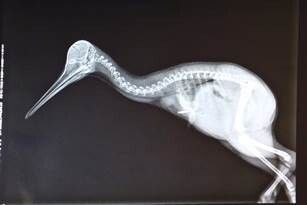Wildlife services
West Coast Vets work closely with the local Department of Conservation to treat wildlife that have been involved in an accident or who require emergency care. Some kiwi may require fluids prior to being flown to Massey or the Wildlife Centre in Dunedin for ongoing care. A Caspian Tern was found lost and not eating, an x ray confirmed a fractured wing. Moreporks, Penguins Tuatara and Woodpigeons are also common wildlife to be Vet checked and prescribed medication before being looked after on the West Coast by local wildlife rehabilitation volunteers prior to their release back into the wild. Those that are less fortunate and can’t be released due to the nature of their injuries, will have a forever home at various Wildlife Sanctuaries such as Willowbank Wildlife Reserve in Christchurch.













